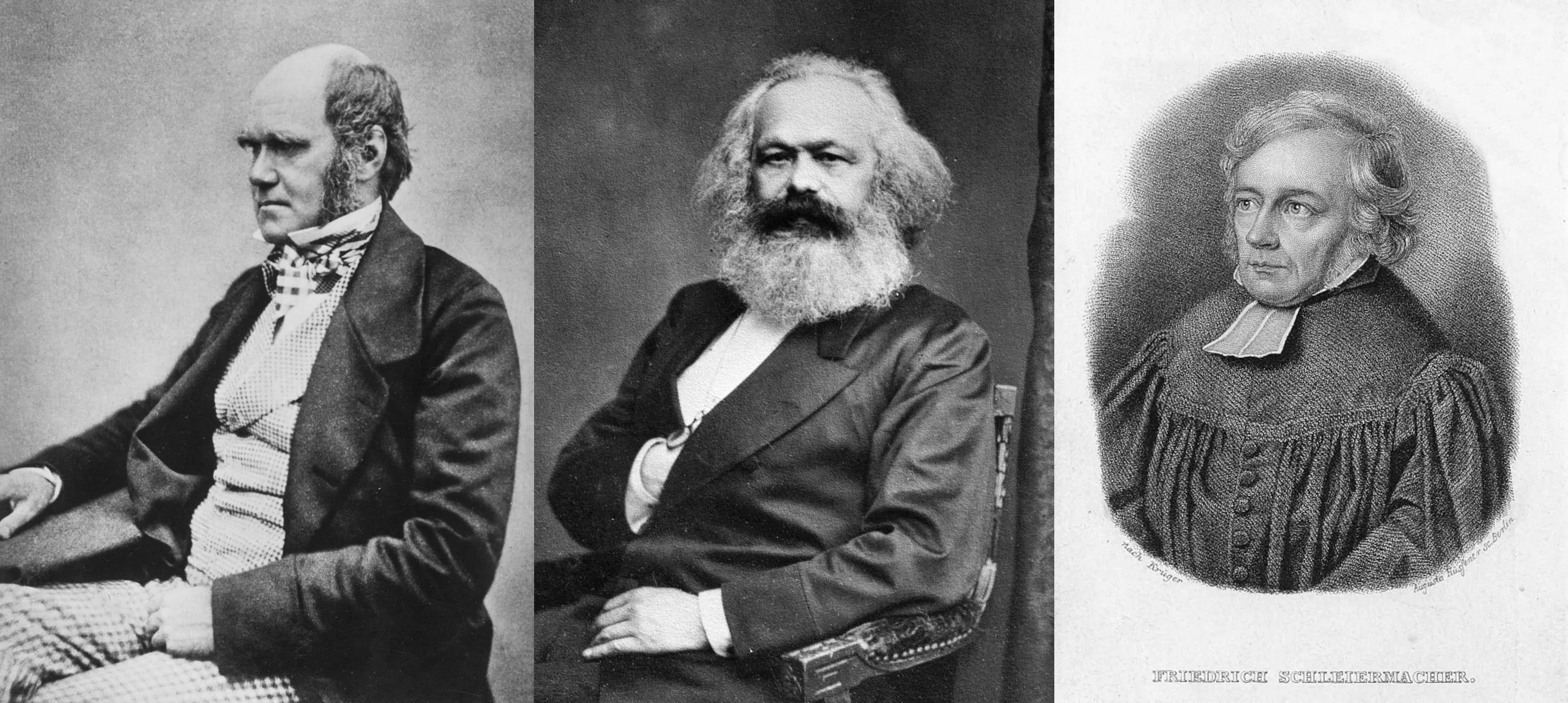In a word: yes. In a video on RightNow Media, author and Bible teacher Lisa Harper explains two reasons: historical eyewitnesses and fulfilled prophecies. My own reasons would be a bit different. And that’s great! There are lots of solid answers. Some reasons or some perspectives resonate with each of us better than others. Like any good father, God engages with each of us in ways that benefit our individual inclinations.
I enjoy talking about this stuff. If you’ll indulge my nerding out for a bit…
Let’s compare Jesus of Nazareth with Alexander III of Macedon, better known as Alexander the Great.

Alexander mosaic, Wikipedia
Alexander lived in the 4th century BC (356-323). As explained by historian Brett Devereaux in “Collections: On the Reign of Alexander III of Macedon, the Great?”, we know of four eyewitness accounts:
- Callisthenes, court historian
- Aristobulus, architect and siege engineer
- Nearchus, naval commander
- Ptolemy, bodyguard and infantry commander, future king of Egypt and ancestor of Cleopatra
We don’t have any of these; they’ve been lost to the ages.
We have several secondary accounts:
- Diodorus Siculus (1st C BC) - discusses Alexander in a universal history that Devereaux calls “a mile wide and an inch deep”
- Quintus Curtius Rufus (mid-1st cent. AD) - although we’re missing a lot of this
- Plutarch (early 2nd AD) - although he himself says he’s more interested in drawing moral lessons than in writing history
- Arrian (early 2nd AD) – this is a solid history – but note that we’re now almost 500 years after Alexander
Compare this with the New Testament – written within a century of Jesus’ death, with traditional authorship giving multiple eyewitnesses (Matthew, John, some of Mark, and some of Acts).
As with most or all ancient texts, we don’t have the original writings. Instead, scribes over the centuries copied manuscripts by hand, occasionally making mistakes or edits, then we can refer to those copied manuscripts. Here are the dates of available manuscripts for the four accounts of Alexander the Great:
- Diodorus – 59 manuscripts starting from the 10th c.
- Curtius Rufus – 123 manuscripts starting from the 9th c. - which sounds better, but the 123 manuscripts are all copies of that 9th c. manuscript
- Plutarch – 6 manuscripts starting from the 10th c.
- Arrian – manuscripts starting from the 12th c.
Compare with the New Testament – we have 5800 manuscripts.
No one says, “Maybe Alexander was really a myth. Maybe he didn’t really conquer the ancient world, and that’s just a legend that was built up after his death.” There were legends about him – even soon after his death – yet we seem confident that we can sort those out.

Rylands Fragment P52, University of Manchester
This is the earliest known NT manuscript. It’s known as Rylands fragment P-52. The surviving fragment is small – roughly 2.5x3.5”. It contains John 18 verses 31-33 and 37-38. It’s dated somewhere between 100 and 200 AD – within 100 years of John writing his gospel. It was found in Egypt; tradition says John lived in Ephesus, so the New Testament writings had spread that across or around the Mediterranean by this time.
So, 5800 manuscripts, starting from 100 years – plus ancient translations of the New Testament into other languages, such as Syriac, plus extrabiblical writings like Clement of Rome and the Didache (“Teachings”). We can have a lot of confidence in our knowledge of what 1st century Christians were saying.
It’s my understanding that 1 Corinthians 15:3-8 contain perhaps the oldest formulated words in the New Testament:
3 For I passed on to you as of first importance what I also received—that Christ died for our sins according to the scriptures, 4 and that he was buried, and that he was raised on the third day according to the scriptures, 5 and that he appeared to Cephas, then to the twelve. 6 Then he appeared to more than 500 of the brothers and sisters at one time, most of whom are still alive, though some have fallen asleep. 7 Then he appeared to James, then to all the apostles. 8 Last of all, as though to one born at the wrong time, he appeared to me also.
“Passed on” and “received” are Jewish or Pharisaic language for learning and passing on specific traditions. In Paul’s autobiographical section in Gal. 1:18-19, he says that he saw Jesus then went to Jerusalem three years later (which is the likely time to have received this creed). If Paul was converted within a couple of years of Jesus’ death, that puts this 3-5 years after Jesus’ death. Even skeptical or atheist scholars will argue for this early date.
As further evidence, Paul otherwise doesn’t use terms like “the twelve” (he prefers “apostles”) or “according to the scriptures” (he prefers “it is written”). Also note in verse 8 that he’s updating it for current events–noting that some of the original witnesses have passed away and adding his own revelation that he received from God.
Some modern-day skeptics argue that Jesus raising from the dead is a legend or a late addition to the stories around his life, but here’s evidence that within a few years of Jesus’ death, his resurrection was already believed and taught and formulated into a creed.
N.T. Wright presents further reasons to believe in the resurrection:
We know of ten or a dozen other movements that arose in Palestine within about a hundred years either side of Jesus… [Each leader] was hunted down by the authorities, and killed. In each case, the death of the leader meant the end of the movement… The rule then, seems clear. If you follow a messiah and he gets killed, you obviously backed the wrong horse. You should either give up, or get yourself another leader from the same family. So why did the followers of Jesus of Nazareth do neither of these things? (The Original Jesus, p. 69-70)
He explains that we know of one exception – when Judas the Galilean, one of the would-be messiahs, was killed, his family members took up the mantle. Jesus, however, had family – his brother James was prominent in the Jerusalem church and even gets mentioned by Josephus–but there’s never any hint that James was selected as the leader.
Wright presents two more arguments: the empty tomb (Jesus’ tomb never became a place to visit, to memorialize or pray or grieve) and the idea of “resurrection” (Jews expected everyone to be raised on the final Day of the Lord, not for one person to be raised in the middle of history) as further evidence.
First, I think this is really cool. Second, and relevant to this topic, it means that Jesus is worth paying attention to.
So, if Jesus is worth paying attention to, let’s pay attention to how he uses the Bible.
34 Jesus answered, “Is it not written in your law, ‘I said, you are gods’? 35 If those people to whom the word of God came were called ‘gods’ (and the scripture cannot be broken), 36 do you say about the one whom the Father set apart and sent into the world, ‘You are blaspheming,’ because I said, ‘I am the Son of God’? (Jn. 10:34-36)
He states that “Scripture cannot be broken” and treats it as an authority in settling an argument with his opponents.
29 Jesus answered them, “You are deceived because you don’t know the scriptures or the power of God. 30 For in the resurrection they neither marry nor are given in marriage, but are like angels in heaven. 31 Now as for the resurrection of the dead, have you not read what was spoken to you by God, 32 ‘I am the God of Abraham, the God of Isaac, and the God of Jacob’? He is not the God of the dead but of the living!” (Mt. 22:29-32)
Here he takes something that the Lord said to Moses (Ex. 3:6) and says that it is in some sense “to you,” his 1st century listeners. And he bases his argument on a single word – God saying “I am” instead of ”I was” – and uses it to communicate deep truth about God and the fate of humanity. And expects that his opponents should have known all this as well as he did.
37 On the last day of the feast, the greatest day, Jesus stood up and shouted out, “If anyone is thirsty, let him come to me, and 38 let the one who believes in me drink. Just as the scripture says, ‘From within him will flow rivers of living water.’” (Jn 7:37-38)
Here he is not quoting any particular passage. There are maybe a dozen suggestions for which verse or verses he is referring to. So not only is Jesus comfortable quoting specific verses and building off of specific words, he’s comfortable taking a sweeping pass through Scripture and summarizing it and paraphrasing it as equally authoritative.
So, obviously, Jesus had a very high view of the Bible – its accuracy, its relevance, and its authority. There’s a lot we could say about how Jesus uses Scripture and how that differs at times from how we approach it. That’s a whole other topic.
For the purposes of this current post, I’ll just say that this is a really good reason to trust the Bible. Apologist William Lane Craig calls this “an inductive argument for scriptural inspiration”:
- God exists.
- God raised Jesus from the dead.
- If God raised Jesus from the dead, God ratified Jesus’ teachings.
- Jesus’ teachings were such that they could be plausibly interpreted to imply the inspiration of Old and New Testament Scriptures.
(He’s deliberately making a very limited claim in this last point for the sake of argument - obviously, there are reasons for Christians to go much further.)
There’s a problem with everything I just said.
This is all my personal opinion. I could be wrong. If this is helpful to you, I’m thankful. If I’m off base, please forgive me and let me know.

Yamato running machinery trials, by Hasuya Hirohata, U.S. Naval History and Heritage Command photo NH 73092, courtesy of Kazutoshi Hando
This is the Yamato. Launched in 1940, the pride of the Imperial Japanese Navy. It’s the biggest battleship ever made.
The Yamato spent much of World War 2 avoiding combat for fear of US aircraft. It contributed to exactly one major battle then was sunk by US aircraft. The problem was that war had changed – the Japanese were preparing for the last war, where big ships with big guns were how you won; now, airplanes and aircraft carriers were what’s important.

Charles Darwin, by Henry Maull (1829–1914) and John Fox (1832–1907); Karl Marx, by John Jabez Edwin Mayall - International Institute of Social History; Friedrich Schleiermacher
In the 18th and 19th centuries, the Age of Reason reigned supreme. Rationalism, naturalism, and materialism (the belief that the material world is all there is) were on the rise. Charles Darwin provided a naturalistic explanation of the origins of life. Karl Marx viewed all of history in purely material terms; religion and the spiritual were unnecessary distractions. Within Christianity, theologians such as Friedrich Schleiermacher started questioning the accuracy of the Bible, whether miracles actually happened, and so on.
Culture as a whole seemed to think that we were entering a new era of scientific and technological advancement, that human reason would unlock continuous progress, that we’d attain a utopia.

Richard Dawkins, by David Shankbone; Christopher Hitchens, by ensceptico; Sam Harris, by Christopher Michel; Daniel Dennett, by David Orban
More recently, at the beginning of the 21st century, we had the New Atheism movement and the Four Horsemen of New Atheism – Richard Dawkins, Christopher Hitches, Sam Harris, and Daniel Dennett. New Atheism’s attitude toward religion was described by anthropologist Melvin J. Konner: “The viewpoints have run the gamut from A to B. Should we bash religion with a crowbar or only with a baseball bat?”
Christians emphasized apologetics as a response to all of this – rational counterarguments against rationalists’ arguments. Creation science and, more recently, intelligent design advocates marshaled arguments from science for a divine creator against Darwin’s theory of purposeless evolution. Against liberal theologians such as Schleiermacher, some Christians emphasized the fundamentals of the Christian faith; they became known as fundamentalists, back before that became insulting shorthand for “close-minded and uneducated religious people.”

American soldiers firing on German entrenched positions, by Department of Defense. Department of the Army. Office of the Chief Signal Officer
But movements don’t last. 18th and 19th century rationalism and materialism started optimistic, but philosophers like Friedrich Nietzsche and artists like Samuel Beckett realized that it led to nihilism. Events of the 20th century crushed naturalism’s optimistic beliefs that science, reason, and technology would usher in a new age of human progress: 15-22 million dead in World War 1; 70-85 million dead in World War 2.
New Atheism grew out of what Scott Alexander calls “early Internet argument culture” – the heady days when it seemed like the new frontier of the Internet could bring the world closer together, and a bunch of nerds could go online and reason through all our differences. It petered out when early Internet utopia was replaced with social media bubbles, and 9/11 and Islamic fundamentalism threw a monkey wrench into the Christianity-versus-atheism divide, and social justice movements replaced New Atheism as the secular left’s hobby horse.
Hitchens died of esophageal cancer after a lifetime of heavy tobacco and alcohol use; Harris became a podcaster and started hawking a mindfulness app. Dawkins is the most interesting case: he decided that he’s a “cultural Christian.” It’s all still false, he says, but he “would not be happy if, for example, we lost all our cathedrals and our beautiful parish churches. So I call myself a cultural Christian, and I think it would be truly dreadful if we substituted any alternative religion… If I had to choose between Christianity and Islam, I’d choose Christianity every single time. It seems to me to be a fundamentally decent religion, in a way that I think Islam is not.”
Dawkins’s cultural Christianity makes me angrier than his aggressive atheism did. If you’re at least claiming to seek the truth and believe Christianity is false, then we can debate that. But if you take an all-loving God, who showed the depths of his love by dying on the cross, and turn it into a packet of traditions and pretty buildings and something that’s merely useful - that feels like spitting on the Savior’s gift.
So, in many ways, we’ve moved past modernism and the religion-versus-science debate. We’ve even moved past postmodernism and its “everything is relative, do whatever works for you” – the secular progressive left will argue intensively for absolute moral truths. We’ve moved into some kind of metamodern storm of non-stop information and everything is online and culture war – Dawkins’ view of Christianity as useful morals for the culture war sadly seems right at home here.
If I’m right – and I’m oversimplifying hundreds of years of intellectual and social and religious history here…
You may have heard people talk about “the rise of the nones.” According to Pew Research, about 28% of Americans are “religiously unaffiliated.” Of those, 63% are “nothing in particular,” not atheist or agnostic. They believe in some sort of higher power but don’t go to religious services; they believe religion can cause some harm and some good; they believe science is good but can’t explain it all; most of them value some sort of spirituality.
I can’t help but get the impression they feel about Christianity vs. atheism the way I feel about the Super Bowl. “Were you pro Chiefs or pro Eagles?” “Neither. I just don’t care. I didn’t even know it was Chiefs vs. Eagles until the day before the game.”
I get the impression that these aren’t “new atheists” who believe Christianity is false and need rational arguments to prove it; they believe Christianity is irrelevant and need a reason to care.
In fact, just by arguing in terms of biology and archeology, we’re in some ways letting our opponents choose the battleground. In Searching for God Knows What, Donald Miller writes,
When the church began to doubt its own integrity after the Darwinian attack on Genesis 1 and 2, we began to answer science, not by appealing to something greater, the realm of beauty and art and spirituality, but by attempting to translate spiritual realities through scientific equations, thus justifying ourselves to culture, as if culture had some kind of authority to redeem us in the first place… Ideas such as Jesus is the Word, He is both God and Man, the Trinity is both three and One, we are united with Him in His Death… are mysterious ideas, not scientific ideas.
In fact, much of biblical truth must go out the window when you approach it through the scientific method. God does not live within the philosophical science He made, any more than He is bound by the natural realities of gravity. There is moral law, to be sure, but moral law is not our path to heaven; our duty involves knowing and being known by Christ. Positive morality, then, the stuff of natural law, is but an offering, a sweet-tasting fruit in the mouth of God. It is obedience and an imitation of our pure and holy Maker; and immorality - the act of ignoring the conscience and the precepts of goodness - is a dagger in God’s heart…
In a culture that worships science, relational propositions will always be left out of arguments attempting to surface truth. We believe, quite simply, that unless we can chart something, it doesn’t exist. And you can’t chart relationships.
Defending Scripture is good and important. It reassures us that there are reasons for our faith. It helps us better understand the gift of God’s Word. It removes obstacles to people coming to Christ (2 Cor 10:4-5).
But, if we’re not careful, we can end up fighting the previous battle, just like the Yamato, instead of realizing that this kind of hard, rationalist argument against Scripture isn’t really where things are today.
Or, maybe worse, we can get caught up in the spirit of the age and reduce our faith to 20th century rationalism or 21st century culture war instead of pointing to the truth and beauty of knowing Christ.
There’s another, deeper problem with everything I just said – beyond how we relate to culture, with how we relate to our faith.
First, when we act like the evidence for our faith is so strong, we sometimes can leave people who don’t see it – who haven’t yet found their way, or who believe but may not see things the way we do, or who are struggling with doubt – feeling like there’s something wrong with them or like they don’t belong. (I’ve felt that way occasionally when listening to other Christians.)
A crushed reed he will not break,
a dim wick he will not extinguish;
he will faithfully make just decrees.– Isaiah 42:3
And have mercy on those who waver; save others by snatching them out of the fire; have mercy on others, coupled with a fear of God, hating even the clothes stained by the flesh.
– Jude 21-23
In contrast, Isaiah promises that Jesus will show incredible gentleness toward those who are struggling. Jude calls on us to have mercy toward those who doubt or who are stained by sin.
Sometimes I even fear that our triumphal confidence in our arguments can become a way of covering up our own struggles – our fears that we might be wrong, or our insecurities when the world gets hostile and belittling toward us - rather than a calm, settled assurance of God’s truth.
Second, we can sometimes end up placing our confidence in our arguments rather than in God.

Bart Ehrman, by Dan Sears UNC-Chapel Hill
Bart Ehrman is a New Testament scholar, author of bestselling Misquoting Jesus and Jesus, Interrupted. He grew up fundamentalist or evangelical, went to seminary, and learned things that challenged his views of Scripture. He came to view the Bible as a human work and ended up leaving the faith entirely (he says because of the problem of pain and evil in the world). He now calls himself “a fairly happy agnostic.”
Daniel Wallace of Dallas Theological Seminary writes:
What I tell my students every year is that it is imperative that they pursue truth rather than protect their presuppositions. And they need to… distinguish core beliefs from peripheral beliefs. [Otherwise], when belief in these doctrines starts to erode, it creates a domino effect: One falls down, they all fall down. It strikes me that something like this may be what happened to Bart Ehrman… When a glib comment from one of his conservative professors at Princeton was scribbled on a term paper… Ehrman’s faith began to crumble.
One domino crashed into another until eventually he became ‘a fairly happy agnostic.’ I may be wrong about Ehrman’s own spiritual journey, but I have known too many students who have gone in that direction… The evangelical community will continue to produce liberal scholars until we learn to nuance our faith commitments a bit more, until we learn to see Christ as the center of our lives and scripture as that which points to him. If our starting point is embracing propositional truths about the nature of scripture rather than personally embracing Jesus Christ as our Lord and King, we’ll be on that slippery slope, and we’ll take a lot of folks down with us.
I want to use our arguments carefully. I want to center my faith on Christ, not on science or archeology. I don’t want to make more Ehrmans.
Even the Bible isn’t the focus of our faith. It’s God’s Word to us, which means that it only fulfills its purpose if God communicates to us through it, if we receive God’s revelation of himself through it – and God’s ultimate revelation is in Jesus.
I think this is part of what Paul is getting at in 1 Corinthians 2:1-5:
1 When I came to you, brothers and sisters, I did not come with superior eloquence or wisdom as I proclaimed the testimony of God. 2 For I decided to be concerned about nothing among you except Jesus Christ, and him crucified. 3 And I was with you in weakness and in fear and with much trembling. 4 My conversation and my preaching were not with persuasive words of wisdom, but with a demonstration of the Spirit and of power, 5 so that your faith would not be based on human wisdom but on the power of God.